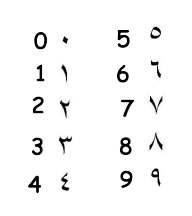Getting on an elevator here is interesting.
First there is the physical nature of the elevators.
Many of them are the old open cage style that is often retro-fitted in the middle of a curving staircase in an older building. Push the button and IF the previous user of the elevator remembered to close the inner doors, the elevator will come down.
Open the outer door, the inner doors, get in, close the outer door, close the inner doors, push button.
There are also more modern ones, in newer buildings, like ones we see in the US all the time.
Both types tend to stop close enough to the desired floor. There is always a small (and sometimes not so small) step up or down when getting in or out of an elevator.
But all of this is a minor annoyance that one quickly adjusts to and forgets about.
What is more interesting and frustrating to me, is the social/cultural differences in the way that elevators are used here.
Here is how it works:
Walk up to the elevator call buttons. Regardless of which floor you are on and which direction you want to go, push both buttons.
Then stand directly in front of the doors.
When the doors open, allow an appropriate amount of time for people to get out of the elevator. This appropriate amount of time is approx 10 microseconds.
Walk into the elevator, but only just enough to clear the doors.
Ok, sometimes people don’t actually get in far enough to clear the doors, and it will take 2 cycles of the doors starting to close and re-opening before someone will move.
Stand there, blocking people trying to enter or exit.
So now, you are on the elevator. It might be going in the direction you want to go in. Or it might not. But you are along for the ride.
What this means is that people on the ground floor of a building, that want to go up, will get on the elevator even if it is going down to the parking area. So then the elevator will be full going down.
It will go down one level, 1 or 2 people will get off and then it will go up again to ground. It will stop at the ground level, the doors will open, but there will be no one left to get on, cause they all got on when it was going down, see?
This means that the elevator is almost guaranteed to stop at every floor going up, and going down.
Unless you are really lazy or carrying something heavy, it is almost always faster to walk.
Fun fun.
